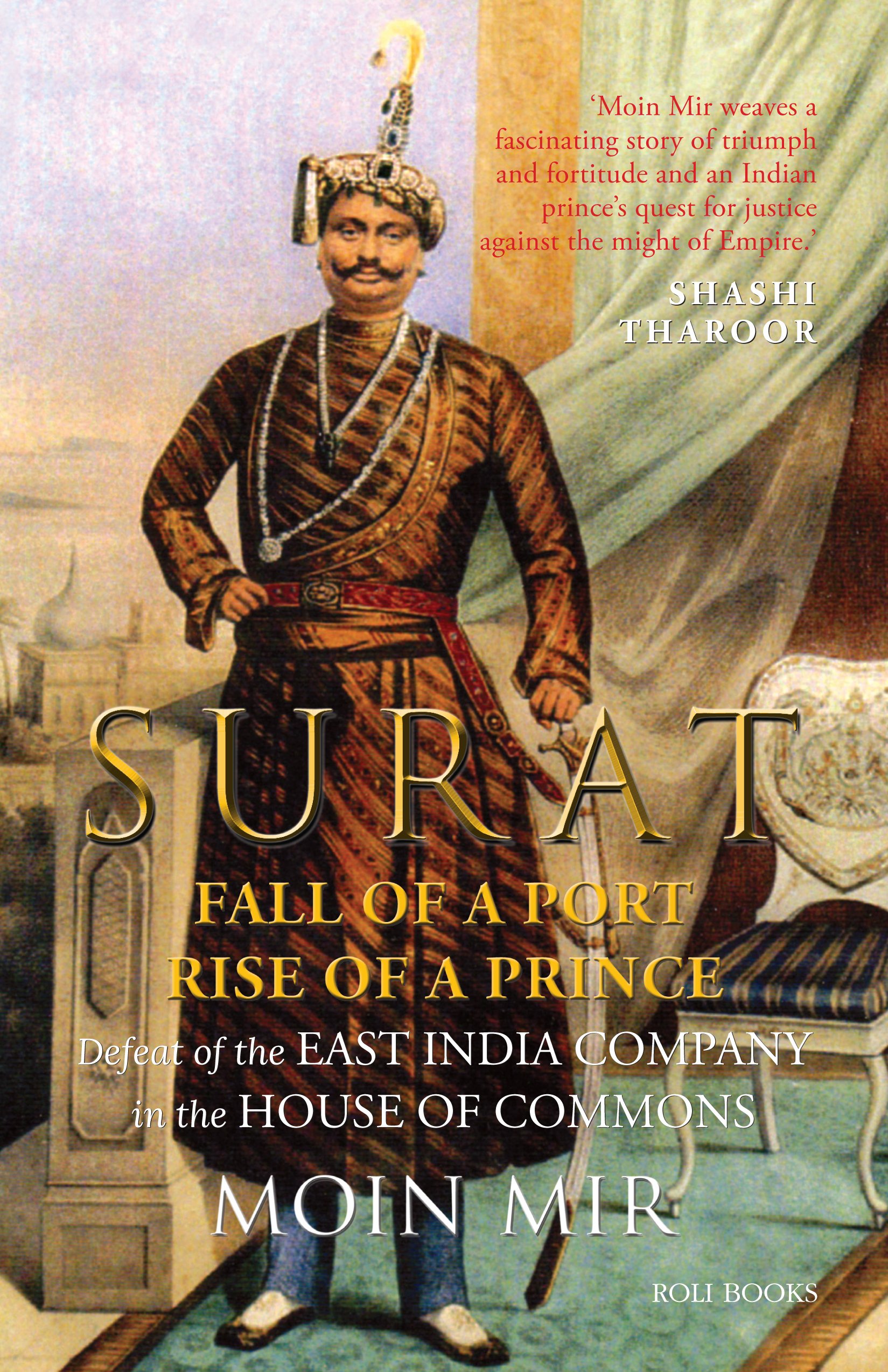The ships of the English East India Company first docked at India’s shores in Surat in the early 17th century.
In time, the Company through astute politics and superior naval power would become masters of this great port,
but not with the objective of building on its legacy as India’s emporia of maritime trade but with the single-minded
goal of destroying its trading prowess. And they did this by overcoming the local princes and fostering corrupt practices.
By 1800 the port had been completely annexed and a Treaty was signed with the Nawab that would guarantee
his family’s security from generation to generation. But the Company violated the treaty by stopping the family
income, usurping the palaces, estates, jewellery and all that was part of the private estates of the Nawab, leaving
the infant granddaughters of the last Nawab on the brink of destitution. In a riveting counterattack Meer Jafar
Ali Khan, father of the two infant girls stood to defy an Empire and expose the corrupt practices of the Company
in Victorian England. Spearheading a legal offensive that would shatter the Company’s reputation, Meer Jafar
Ali Khans campaign for justice generated great heat and debate in British Parliament. Fighting against all odds
this prince won it all back for his daughters and found true love in Victorian England.




